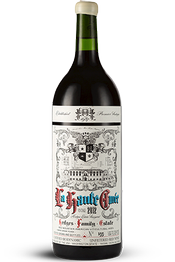Hedges Family Estate, Red Mountain (Washington) “La Haute Cuvée” 2012 ($120 in magnum): As long as I have known the property, Hedges has been a different kind of winery. The two founders, Tom and Anne-Marie Hedges, have far-reaching international backgrounds, and her French upbringing in particular permeates the ethos of their winery. Their winery building is a chateau. Their aim is to make wines that reflect the land — “farmers first and winemakers second,” as their literature reads.  They are deeply attached to their vineyards and to the small Red Mountain AVA, which they helped bring to official recognition in 2001.
They are deeply attached to their vineyards and to the small Red Mountain AVA, which they helped bring to official recognition in 2001.
All of this is to say that when I taste a Hedges wine, I expect it to be particular, a wine that reflects a traditional European approach with West Coast fruit.
The flagship wine of Hedges Family Estate is called simply Hedges Red Mountain; it was first produced in 1987 under the name Red Mountain Reserve, from estate-grown grapes. The wine today is a blend based on Cabernet Sauvignon and Merlot — at 44 and 33 percent respectively — with Syrah (16 percent), Malbec (4 percent) and Cabernet Franc (3 percent) rounding out the current release, 2011. I have often found this wine to be an ager, the product of small and thick-skinned grapes, a wine with firm tannins that promise sweetness and complexity in time. The 2011, also, is a commanding wine, with tannins extending all across the palate, but those tannins are rich and silky. Apart from a juicy note that presumably the Syrah brings, the wine is a classic and satisfying Bordeaux-style blend that is a great buy at $27 and enjoyable now and for about five to eight years, if not longer.
With the 2012 vintage, though, Hedges has raised the ante. Hedges Family Estate La Haute Cuvée is a new wine, entirely Cabernet Sauvignon, produced from the oldest estate vines, planted in 1990. The vineyards for this wine — mainly the Hedges vineyard, with the Magdalena vineyard contributing 20 percent of the grapes — were certified biodynamic in 2011 and the grapes are fermented using no commercial yeasts. As if to communicate the wine’s aging potential, it is available only in magnums, at $120 per magnum.
La Haute Cuvée is a massive wine but it is ultimately about refinement and finesse more than fruit-bomb expression. Without significant aeration, it is a dense, young wine packed with tannin and concentrated fruit. After an hour or more, the wine begins to come together. Its flavors open into fresh dark fruit notes with accents of spices and fresh herbs and its structure becomes rounded and complete, its tannins delicate and grainy along the surface of the tongue. Right from the start, the wine shows a complex and intriguing aroma; this aroma evolves with aeration from an ethereal perfume to more specific black berry, allspice and mint aromas with a meaty undertone. The wine fills the mouth in a complete and harmonious whole. The wine’s finish is strong and long, enduring well after the wine has left your mouth.
La Haut Cuvée ages in more new oak than the Hedges Red Mountain, but it does not rely on extreme oak for its quality. The oak is 56 percent American and 44 percent French, and only slightly more than half of the barrels are new oak. In contrast, the Hedges Red Mountain ages in American, French and Hungarian oak in a 60-33-7 percent ratio, and 31 percent of those barrels are new.
If you want to try La Haut Cuvée now, decant it and let it aerate for about two hours — and bring out your largest Bordeaux-style stemware to enhance aeration in the glass. If you have good storage conditions, cellar the wine and try it in five years to determine how it is developing.
For the future, the Hedges family plans to make La Haut Cuvée every year, botting it in magnums and also 750ml bottles.
92 Points
